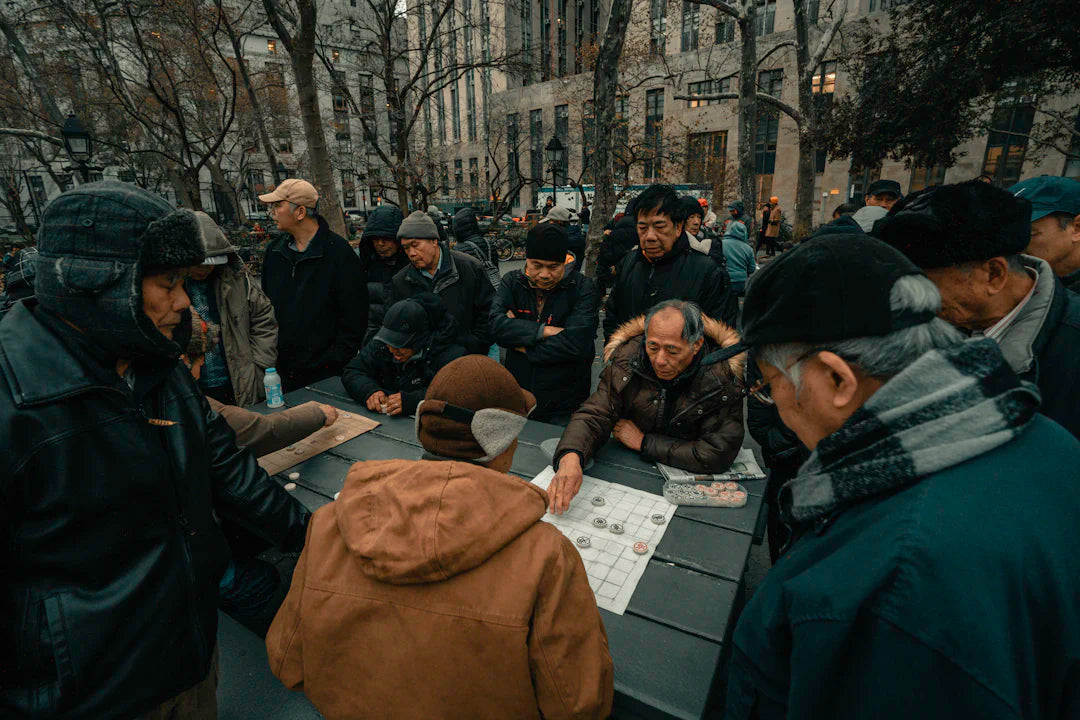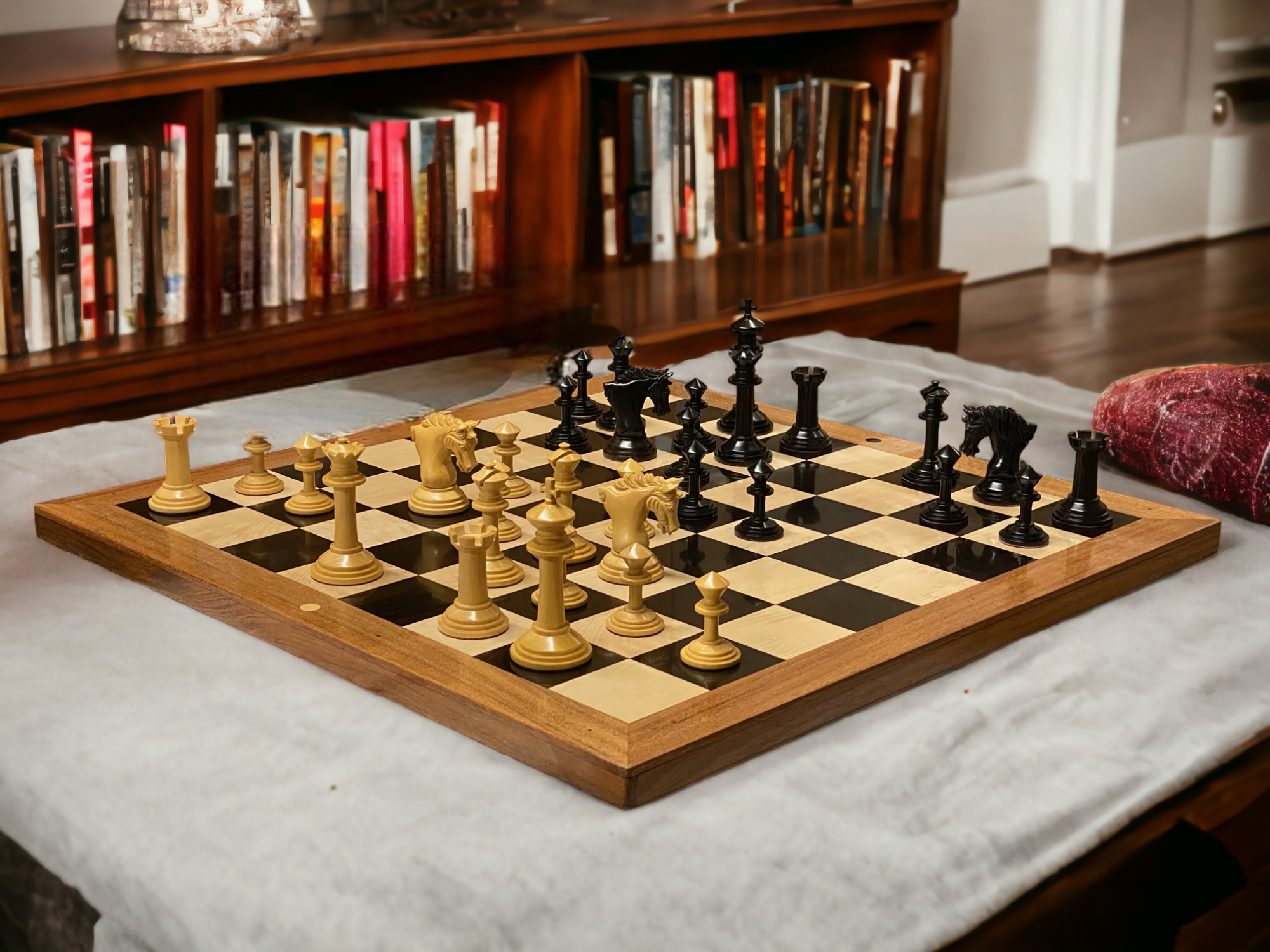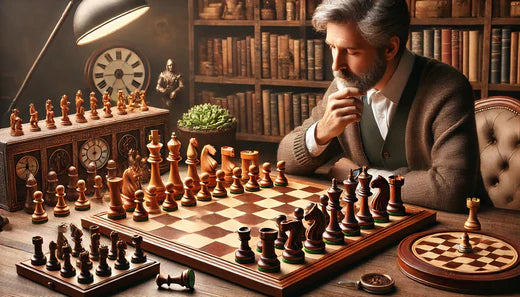Chess is a game of strategy, intellect, and patience. It’s a timeless pursuit that has captured the hearts of millions across the globe. At the heart of this regal game lies an incredible community of players who dedicate their lives to mastering it. Recently, we had the pleasure of interviewing a chess pro who shared valuable insights and advice for both aspiring and seasoned players. From the importance of the right equipment, such as Ebonised Old English chess pieces, to the nuances of strategy, this interview is packed with knowledge. Let’s dive in!
Meet the Chess Pro
Our featured chess expert, Grandmaster Simon Richards, has been a prominent figure in the chess community for over a decade. Known for his incredible analytical skills and tournament victories, Simon has much to share with us. In this conversation, he discusses his journey, strategies, and the importance of quality equipment, particularly the often-overlooked significance of using Ebonised Old English chess pieces.
The Journey to Mastery
When it comes to chess, every player has a unique story. Simon began playing at the tender age of six, inspired by his grandfather, who introduced him to the game at family gatherings.
“I remember the intense focus and the thrill of making my first move,” he recalls. “From that moment, I was hooked. I joined my school chess club and began participating in local tournaments.”
Simon’s journey was not without its challenges. He faced numerous setbacks throughout his career, from losses in critical matches to moments of self-doubt. Yet, these challenges forged his resilience and tenacity. He shared a valuable piece of advice for newcomers:
“Every loss is a lesson. Embrace it, learn from it, and come back stronger.”
Strategies for Success
As we delved deeper into the strategic elements of chess, Simon shared some of his favourite techniques that he employs both in practice and competition.
1. Opening Principles
“Understanding the opening is crucial,” Simon emphasizes. “It sets the tone for the entire game.” He recommends familiarising yourself with various openings, as they lay the groundwork for your mid and endgame strategies. Additionally, he advocates for a solid understanding of classical openings such as the Ruy Lopez or the Italian Game.
2. The Importance of Piece Development
Simon reiterates the significance of developing your pieces early:
- Move the knights and bishops out: This allows for control of the centre of the board.
- Avoid unnecessary pawn moves: Too many pawn moves can lead to a stagnant position.
- Prioritise piece safety: Ensure that your pieces are not easily attacked or out of position.
3. Endgame Mastery
“Many players overlook the endgame,” Simon warns. “Understanding endgame tactics can be the difference between a win and a draw.” He encourages players to practise various endgame scenarios, such as king and pawn versus king, to develop a robust ending strategy. Mastering the endgame can turn a losing position into a miraculous victory.
The Role of Equipment: Choosing the Right Chess Pieces
Simon also touched on a critical aspect of chess that many players might not consider: the equipment. He believes that the chess pieces used can significantly affect the game experience. He is particularly fond of Ebonised Old English chess pieces for their aesthetic appeal and tactile feel.
1. Aesthetic Considerations
Ebonised Old English chess pieces are known for their dark, polished finish that offers a classic, sophisticated look. Simon believes that playing with aesthetically pleasing chess pieces enhances the overall enjoyment of the game. “There’s something about the feel of quality pieces in your hand that elevates the entire experience,” he says.
2. Durability and Performance
In competitive play, having durable chess pieces is essential. Simon advises players to choose pieces that can withstand frequent use:
- Weight: He prefers heavier pieces as they are stable and less likely to tip over during tense moments.
- Material: Quality materials ensure longevity and a pleasing tactile experience.
- Design: A well-designed piece can aid in easy recognition of the various types on the board.
Mindset: The Mental Game
Beyond the tactical elements, Simon emphasizes the importance of a strong mental game:
1. Focus and Concentration
“Chess is as much a mental battle as a tactical one,”
he explains. To maintain focus during long games, Simon suggests practising mindfulness techniques and breaks during matches. This practice helps refresh the mind and stay alert.2. Dealing with Pressure
To perform well under pressure, Simon has developed personal strategies:
- Visualisation: Before each match, he visualizes both the best and worst possible outcomes.
- Breathing Exercises: Deep breathing helps keep nerves at bay.
- Staying Present: Focussing on the current position rather than the outcome diminishes anxiety.
3. Practice, Practice, Practice
Simon believes that continuous practice is key to maintaining mastery. He dedicates a part of his daily routine to playing against opponents of various skill levels, as well as solving chess puzzles to keep his mind sharp.
The Vibrant Chess Community
Simon also spoke about the immense support found within the chess community. From local clubs to online platforms, there are countless opportunities to connect with fellow enthusiasts.
1. Joining a Club
For novices, joining a chess club is an excellent way to meet other players and improve skills. Simon recommends finding a club that suits your level:
- Beginner Clubs: Focused on teaching fundamentals.
- Intermediate/Advanced Clubs: Engage in competitive play and strategy discussions.
2. Online Resources
In today’s digital era, online platforms have revolutionised the way we play chess. Simon advocates for using reputable sites to study games and connect with players worldwide:
- Online Tutorials: Many grandmasters offer online lessons.
- Interactive Puzzles: Websites boast a plethora of puzzles to sharpen your skills.
Embrace the Journey
Simon’s insights remind us that chess is not simply about winning or losing but a profound journey of growth and mastery. He encourages up-and-coming players to relish every moment spent at the board, continuously striving for improvement. The journey in chess is paved with challenges, triumphs, and invaluable lessons. So whether you’re perfecting your opening repertoire or savouring the elegant feel of Ebonised Old English chess pieces, embrace it wholeheartedly.
“Enjoy the game, and remember that each match is a stepping stone on your path to mastery,” Simon emphasises. As players, let's cherish our experiences and foster a love for this ancient game that continues to bring thrill and strategy into our lives.
In the world of chess, every match is a new opportunity to learn and grow. Take Simon's advice to heart, and pave your way to success on the board. Who knows? Maybe one day you’ll find yourself sharing your own insights with the next generation of chess enthusiasts!



